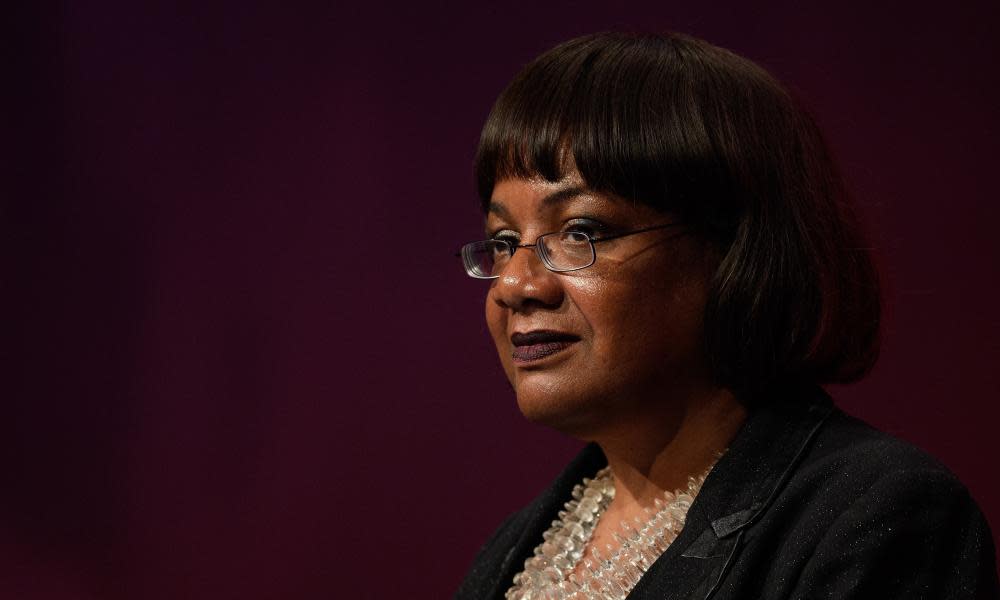Make Facebook liable for content, says report on UK election intimidation

Theresa May should consider the introduction of two new laws to deter the intimidation of MPs during elections and force social media firms to monitor illegal content, an influential committee has said.
The independent Committee on Standards in Public Life, which advises the prime minister on ethics, has called for the introduction within a year of a new specific offence in electoral law to halt widespread abuse when voters go to the polls.
The watchdog will recommend another law to shift the liability for illegal content on to social media firms such as Facebook and Google, a legal change which will be easier once Britain leaves the European Union.
Both changes form part of the hard-hitting conclusions of an inquiry into intimidation experienced by parliamentary candidates in this year’s election campaign.
Other recommendations include:
Social media firms should make decisions quickly to take down intimidatory content.
Political parties should, by December 2018, draw up a joint code of conduct on intimidatory behaviour during election campaigns.
The National Police Chiefs’ Council should ensure that police are trained to investigate offences committed through social media.
Ministers should bring forward rules so that council candidates will no longer be required to release their home addresses.
Lord Bew, the committee chair, said: “This level of vile and threatening behaviour, albeit by a minority of people, against those standing for public office is unacceptable in a healthy democracy. We cannot get to a point where people are put off standing, retreat from debate, and even fear for their lives as a result of their engagement in politics.
“This is not about protecting elites or stifling debate, it is about ensuring we have a vigorous democracy in which participants engage in a responsible way which recognises others’ rights to participate and to hold different points of view.”
A YouGov survey of 1,616 adults last month, commissioned by the committee, found that 49% either agreed or were ambivalent when asked if MPs who received abuse brought it upon themselves. But n 62% found it highly unacceptable that any member of the public should send abusive messages to MPs on social media.
A majority of the public – 60% – found it unacceptable that MPs had been disrespectful to members of the public on social media.
MPs reported being subjected to weeks of abuse leading up to the general election, including racism, antisemitism and death threats.
The shadow home secretary, Diane Abbott, was found by Amnesty to have received 45% of all abusive tweets sent during the election, many of which were racist and sexist.
Dozens of MPs had already moved to improve their security after Labour MP Jo Cox was murdered by a rightwing extremist in 2016.
The report said that the intimidation of parliamentary candidates was of particular significance because of the threat it posed to the integrity of the democratic process.
“A new electoral offence of intimidating parliamentary candidates and party campaigners during an election should be considered. This would serve to highlight the seriousness of the issue, result in more appropriate sanctions, and serve as a deterrent,” it said.
Facebook, Twitter and Google “are not simply platforms for the content that others post” because they play a role in shaping what users see, and so “must take more responsibility for illegal material”, the committee said.
They were not liable “largely” due to a EU directive which treated them as “hosts” of online content, the watchdog said, but May’s commitment to Brexit means the government can introduce laws to make companies responsible once the UK leaves the EU.
The report said social media was “the most significant factor” driving harassment, abuse and intimidation of 2017 general election candidates, which included threats of violence and sexual violence, as well as damage to property.
“Some have felt the need to disengage entirely from social media because of the abuse they face, and it has put off others who may wish to stand for public office,” the report said.
“Not enough has been done. The committee is deeply concerned about the limited engagement of the social media companies in tackling these issues.”
The committee said it was concerned about the impact on the diversity of a representative democracy and said parties had an “important responsibility” to support female, black and minority ethnic and LGBT candidates.
Abbott welcomed the proposal for new obligations on social media companies but questioned whether it would be right to call for new legislation covering intimidation. “I’m not persuaded that yet more legislation is required. Intimidation, threatening behaviour and violence are all illegal. These laws need to be enforced for everyone,” she said.
She questioned whether she could work with all political opponents given that some were accused of being behind some social media campaigns. “Yes, of course, political parties should work together to combat intimidation. But some of my opponents have engaged in dog-whistle politics, and not just at election time,” she said.

 Yahoo News
Yahoo News 
